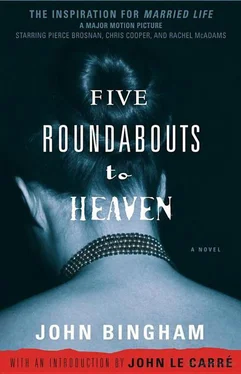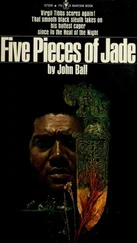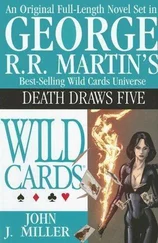John Bingham - Five Roundabouts to Heaven
Здесь есть возможность читать онлайн «John Bingham - Five Roundabouts to Heaven» весь текст электронной книги совершенно бесплатно (целиком полную версию без сокращений). В некоторых случаях можно слушать аудио, скачать через торрент в формате fb2 и присутствует краткое содержание. Жанр: Криминальный детектив, на английском языке. Описание произведения, (предисловие) а так же отзывы посетителей доступны на портале библиотеки ЛибКат.
- Название:Five Roundabouts to Heaven
- Автор:
- Жанр:
- Год:неизвестен
- ISBN:нет данных
- Рейтинг книги:4 / 5. Голосов: 1
-
Избранное:Добавить в избранное
- Отзывы:
-
Ваша оценка:
- 80
- 1
- 2
- 3
- 4
- 5
Five Roundabouts to Heaven: краткое содержание, описание и аннотация
Предлагаем к чтению аннотацию, описание, краткое содержание или предисловие (зависит от того, что написал сам автор книги «Five Roundabouts to Heaven»). Если вы не нашли необходимую информацию о книге — напишите в комментариях, мы постараемся отыскать её.
Five Roundabouts to Heaven — читать онлайн бесплатно полную книгу (весь текст) целиком
Ниже представлен текст книги, разбитый по страницам. Система сохранения места последней прочитанной страницы, позволяет с удобством читать онлайн бесплатно книгу «Five Roundabouts to Heaven», без необходимости каждый раз заново искать на чём Вы остановились. Поставьте закладку, и сможете в любой момент перейти на страницу, на которой закончили чтение.
Интервал:
Закладка:
When she occasionally grew fretful about handing out money in accordance with Father’s wishes from Beyond, aunt Emily would sometimes suggest that her sister’s one spare room could be used to house a rich lodger. Doubtless she envisaged some old recluse, full of years and money, who would eventually die and leave them his fortune. But aunt Rose said it would be “bad for James’s nerves,” not that he was ever known to suffer from any.
Looking back now over the years, I see they were a cheerful, feckless couple who wasted their substance chasing a mirage; who fed well, and were never without a bottle of whisky in the house; who ran up bills which they could not pay, and believed that the world owed them a living.
But they were sweethearts from the day they met until the day when death came to aunt Rose, and the dustman eventually carted away the vast accumulation of papers in the case that aunt Rose never won, and never could have won, had she lived to be a hundred.
I smile when I think of them, Bartels’ aunt Rose, aunt Emily and uncle James; time has erased from the memory such blemishes of character as they may have had, and wiped out the recollections of the inevitable little acrimonious squabbles which arose between them.
They were kind to Philip Bartels, they were genuinely fond of him, but that is as far as it went. Aunt Emily was too occupied with her stocks and shares and her tenants, and aunt Rose was too occupied fighting the legal scoundrel, and rogues who declined to work for her without payments to develop any real love of him.
Even uncle James never really took to him, for Bartels had never hunted, never showed much interest in the Army as a career, and at that time did not know one end of a shotgun from another.
That, then, was the boyhood background of the man the cool-brained Beatrice married, the girl whose arrival at the chateau was followed, appropriately, as it now seems, by one of the most violent thunderstorms in the history of the Sologne area.
Few lives are completely tragic or even sombre. Bartels’ boyhood had its amusing side, even its ludicrous moments, but he was too young fully to appreciate them.
In retrospect his youth seems, on the whole, not unpleasant. There have been many worse. But it did him no good, no good at all. Bartels needed more emotional warmth than he could ever find at 257 Melville Avenue; more, too, than Beatrice Wilson could ever give him, either before or after they were married.
Chapter 4
Brooding in the woods above the chateau where Bartels and I had been so happy, I was compelled to admit to myself that I had played my cards cleverly in the events which occurred all those years later.
I concealed my part in the Bartels’ affair so well that I know for certain that on the February night when, for him, the world burst into flames and fell in ruins, the thoughts which he entertained for me were still those of a friend.
His actions proved it.
So much the better. I am glad to think that to the burden of his fear there was not added the bitterness of one who thinks he has been betrayed.
I don’t say that the role I played was a noble one. It was not. Where things of the heart are concerned men mostly become selfish. But although my actions had been dictated by my own interests, I had for long been in doubt as to whether I need entirely reproach myself for the course which I took.
I had argued that I had acted, at first, perfectly legitimately, and that by the time the moment for sacrifice had arrived, only a saint could have found the strength to make it.
If you lead a normal life in a town such as London, if you can call town life normal, which I doubt, you can get away from your conscience to some extent. I could, anyway. There are plenty of distractions.
But it was different when I was back there that evening.
When you go back, as I did, and see the ghosts, and one ghost in particular, and see him as he was, and remember all that happened in later years, you come face to face with yourself.
Arguments which have formerly held good begin to fall away. Doubts creep in, slimily, from behind, and you’ve got to round on them and grab them by the throat and throttle them, if you can, or they trample you down.
So the truth begins to emerge.
Chapter 5
After I had left the chateau I went to Germany and Italy, to learn the languages of those countries. I worked in hotels at home and abroad, on the Continent and in America, for although my father had a comfortable position in mind for me when I knew the hotel business, he was determined that I should go through the mill first.
I worked in every department which you can find in a big hotel, doing both manual work and office work, for my father, who had built his business the hard way, had no mind to have it wrecked some day by a dilettante.
It was hard, but I enjoyed it, meeting many types of men, and almost as many different types of women. But I rarely stayed more than a few months in each place, and, since there is safety in numbers, the attractions of one girl had hardly begun to impress me before I left; and the charms of her successor, I must own, proved scarcely less acceptable.
I had lost Ingrid, for reasons which it is unnecessary to outline, and thereafter I remained comparatively free.
It was not so with Bartels.
We wrote to each other fairly often, and in due course I learnt that he had gone into the wine trade, as envisaged, that after a period in a London office he had toured the well-known vineyards, and finally he had gone out on the road to sell his wares.
It is not fair to mention here the name of the firm for which he worked, but it had a reasonable reputation, and with the small income he inherited from his parents, and what he made by way of commission, he had an adequate income, at the age of twenty-six, upon which to marry.
So he married. He married Beatrice Wilson, and invited me formally to the wedding, though I was at that time in America. And when I heard the news I wondered why Beatrice Wilson, that attractive, witty, and intelligent girl, should have married little frog-faced Bartels; even though he did have a certain charm, and a slow and melodious voice.
I spent most of the war in a Japanese prisoner-of-war camp, but I was lucky, and returned to London in comparatively good health, in 1946. As my parents were at that time living in Bucking-hamshire, I sought and was fortunate enough to find a small modern furnished flat in Kensington High Street, and soon after my return, I telephoned Bartels at his office, not knowing whether he was dead or alive.
There was no mistaking the slow, deep voice which answered the phone, and which contrasted so curiously with his slender frame. He sounded genuinely delighted to hear from me. I agreed to go to dinner with him and Beatrice the following night, and when we learnt that we were living within a few minutes’ walk of each other we were as pleased as Punch.
It seemed that our old boyhood friendship would be renewed, and indeed for three years and more this proved to be the case. It was a happy time for me. I had work, friends, my darkroom in my flat, where I carried out photographic experiments.
I was delighted to see that, despite certain misgivings I had had, to all outward appearances the marriage was a success.
Beatrice was a splendid housewife. She was still extremely good-looking and seemed contented and happy. Her parents had bought for her a small cottage near Balcombe, in Sussex, and in the summer months they would go down there for long weekends. I often went with them.
They had a pleasant circle of friends, both in London and in Sussex, and if I sometimes thought that Bartels was quieter than he used to be, I formed the opinion that this was because he had not been very well treated by his firm.
Читать дальшеИнтервал:
Закладка:
Похожие книги на «Five Roundabouts to Heaven»
Представляем Вашему вниманию похожие книги на «Five Roundabouts to Heaven» списком для выбора. Мы отобрали схожую по названию и смыслу литературу в надежде предоставить читателям больше вариантов отыскать новые, интересные, ещё непрочитанные произведения.
Обсуждение, отзывы о книге «Five Roundabouts to Heaven» и просто собственные мнения читателей. Оставьте ваши комментарии, напишите, что Вы думаете о произведении, его смысле или главных героях. Укажите что конкретно понравилось, а что нет, и почему Вы так считаете.












